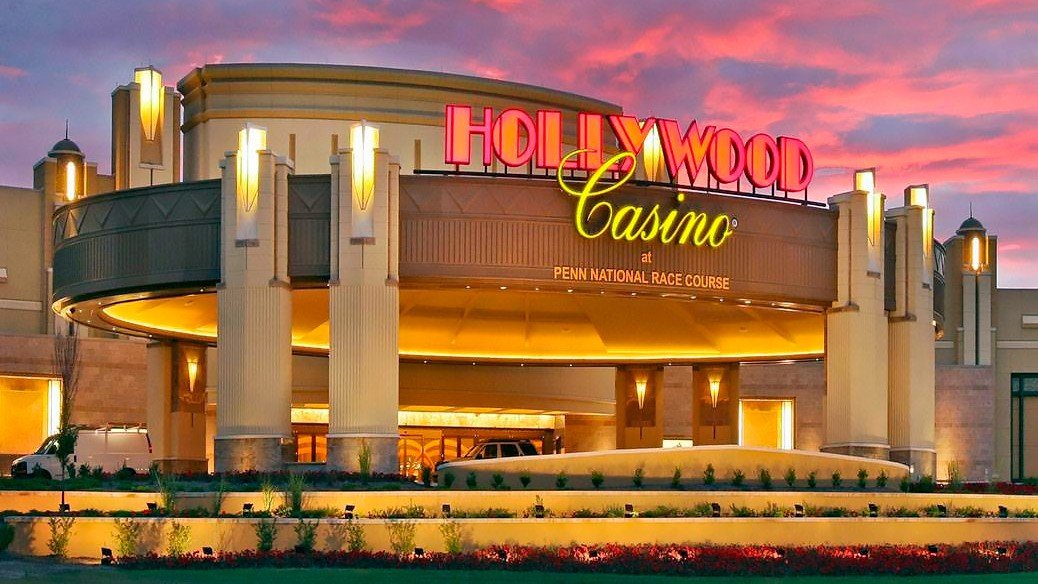Brazil: commission approves legalization of casinos, bingos and jogo do bicho

The Justice and Citizenship Commission (CCJ) has given its approval on Wednesday (19) with a vote of 14 to 12 in favor of the bill that legalizes the operation of casinos and bingo halls in Brazil, as well as allowing gambling and betting on horse races. The approved text will now proceed to the Senate plenary for further consideration.
Bill 2.234/2022, which has already been endorsed by the Chamber of Deputies, received a positive vote from the rapporteur, Senator Irajá (PSD-TO), who incorporated suggested amendments and proposed modifications.
During the session, Senator Irajá highlighted that countries that have implemented "responsible regulation" of gaming and betting have experienced social and economic development, along with an increase in tourist arrivals. He mentioned that investments following the bill's approval could potentially reach R$100 billion, leading to the creation of approximately 1.5 million direct and indirect job opportunities. The projected annual revenue, he added, is estimated to be R$22 billion, to be distributed among states, municipalities, and the Union. - It is imperative that we seize this significant opportunity that other competitive nations have already recognized, leading to job creation, revenue generation, and tax contributions, all of which will ultimately translate into benefits for the Brazilian population in crucial sectors such as healthcare, education, social welfare, and infrastructure - he emphasized.
- It is imperative that we seize this significant opportunity that other competitive nations have already recognized, leading to job creation, revenue generation, and tax contributions, all of which will ultimately translate into benefits for the Brazilian population in crucial sectors such as healthcare, education, social welfare, and infrastructure - he emphasized.
The rapporteur highlights that the current illegal forms of gambling could have generated a substantial amount of revenue between R$14.3 billion and R$31.5 billion in 2023. This estimate is based on data from 2014, adjusted for inflation.
The senator argues that even though gambling may be considered a misdemeanor, it is still a significant economic activity that should be regulated by the state. By subjecting gambling to state control, it would be possible to address any potential connections between gambling and organized crime.
Since 2022, the proposal has been under consideration in the Senate, while the original text was initially presented in the House back in 1991. Opposing parliamentarians express concerns that the bill could potentially promote gambling and facilitate crimes such as money laundering, trafficking, and prostitution.
Senator Alessandro Vieira (MDB-SE) highlighted the risks associated with the operation of casinos, emphasizing the potential for money laundering and the empowerment of criminal organizations. Meanwhile, Senator Magno Malta (PL-ES) equated gambling addiction to drug addiction, underscoring its detrimental impact on society. Additionally, Senator Eduardo Girão (Novo-CE) pointed out the correlation between the presence of casinos in urban areas and increased crime rates, drawing parallels with the situation in Las Vegas, United States.
President of the CCJ, Senator Davi Alcolumbre (União-AP) told the meeting that the bill had already been tabled several times, but had not yet been voted on due to a lack of consensus. Last week, Irajá presented a supplement to his report, but the text was not put to the vote. Faced with disagreements on the matter, Alcolumbre decided to postpone the discussion until this Wednesday.
The bill establishes specific rules for different types of games. According to the rapporteur, by establishing numerical limits for commercial establishments that can offer casinos, bingos and games of chance, the bill "facilitates inspection by the Ministry of Finance and allows for greater state control of any negative externalities".
Casinos
Casinos will now be permitted to operate in designated tourist centers or integrated leisure complexes, such as resorts and high-end hotels with a minimum of 100 rooms. These establishments will also feature restaurants, bars, and spaces for hosting meetings and cultural events.
An amendment proposed by Senator Ângelo Coronel (PSD-BA) has been included in the legislation, specifying that casinos can also operate on boats exclusively designated for this purpose or within integrated leisure complexes. Each state and the Federal District will be limited to having only one casino, except for São Paulo, which can have up to three, and Minas Gerais, Rio de Janeiro, Amazonas, and Pará, which can have up to two each, based on their population or territory size.
Furthermore, casinos can be established on maritime vessels, with a maximum limit of ten throughout the country. Additionally, river vessels with a minimum of 50 rooms can also accommodate casinos. The number of casinos allowed on rivers will vary based on their length: one casino for rivers between 1,500 and 2,500 kilometers long, two for rivers between 2,500 and 3,500 kilometers long, and three for rivers exceeding 3,500 kilometers in length.
Riverboats with casinos may not remain anchored in the same location for more than 30 days in a row.
In order to operate, each casino - defined as a place where games of chance or skill are played by betting on roulette wheels, cards, dice or gaming machines - will need to prove a minimum paid-up share capital of at least R$100 million. The licence will be valid for 30 years, renewable for the same period.
Bingo halls
The game of bingo can be operated permanently in specific locations, both in the form of cards and in the electronic and videobingo forms. There may be one bingo parlour in each municipality, with larger cities having one for every 150,000 inhabitants.
Municipalities and the Federal District will be authorised to operate bingo games in stadiums with a capacity of at least 15,000 fans, provided they are not occasional.
Bingo halls will be authorised to operate for 25 years, renewable for the same period. To apply for authorisation, they will need to prove a minimum paid-up share capital of R$10 million.
Jogo do bicho
In each jurisdiction, including the Federal District, a single legal entity is permitted to operate the game of bicho for every 700,000 residents. However, in Roraima, which has a population below this threshold according to the 2022 Census, only one gambling operator will be granted authorization.
Authorized legal entities have the opportunity to operate the game for a period of 25 years, with the possibility of renewal for an additional 25 years. To be eligible for authorization, these entities must demonstrate a minimum paid-up share capital of R$10 million.
On the other hand, betting on horse races is exclusively managed by horse racing organizations that are accredited by the Ministry of Agriculture. These same organizations may also obtain accreditation to operate bingo and video bingo games, as long as they are conducted within the same venue as the horse racing events.
Betting machines
The bill also regulates the rental of betting machines and requires all of them to be registered with the government, as well as periodic audits.
Gambling and betting machines must be operated at a rate of 40 per cent for the rental company and 60 per cent for the bingo or casino establishment, on gross revenue, which is the difference between the total bets placed and the prizes paid out.
Taxation
Two new taxes are set to be established for licensed gaming and betting operators: the Gaming and Betting Inspection Fee (Tafija) and the Contribution for Intervention in the Economic Domain on the commercialization of gaming and betting (Cide-Jogos). Bookmakers will be exempt from other taxes and contributions.
Tafija, sourced from the National Treasury, must be paid every quarter. The fee amounts to R$600,000 for casinos, R$300,000 for online gaming centers, and R$20,000 for bingo halls, jogo do bicho operators, and turf entities.
Cide-Jogos will have a maximum rate of 17 percent (subject to reduction by the Executive Branch) for all entities involved in gaming and betting. This contribution will be based on gross revenue, calculated as the difference between total bets placed and prizes awarded.
Out of the total revenue collected, 16 percent will be allocated to the State Participation Fund, 16 percent to the Municipal Participation Fund (FPM), 12 percent to the Brazilian Agency for International Tourism Promotion (Embratur), 10 percent to initiatives in the sports sector, and 10 percent to the National Culture Fund.
The rest will be used for actions to prevent gambling addiction, health, public safety, animal protection, student funding, actions in areas impacted by natural disasters and the National Fund for Children and Adolescents.
In addition, gaming and betting operators must allocate 1% of their gross revenue to training athletes, with transfers made directly to the Brazilian Club Committee and the Brazilian Paralympic Club Committee.
Winnings of R$10,000 or more received by bettors will pay 20% Income Tax, already withheld at source. The calculation will take into account the difference between the prize received and the bets placed by the same player in the last 24 hours.
Bettors
People in full exercise of their civil capacity may place bets. People who have been declared insolvent or deprived of the administration of their assets and over-indebted consumers who have been in a legal debt restructuring process in the last two years will be excluded from gambling.
Public officials who are members of bodies responsible for regulating or supervising gaming, as well as administrators and members of the controlling groups of gaming centres, will also be prevented from placing bets.
Bill 2.234/2022 provides for the creation of the National Registry of Prohibited Persons (Renapro), a register of people who will be prevented from placing bets and even entering casinos and other places where games are played, including apps and electronic sites.
Gaming centres will have to check whether or not the people who apply to enter these establishments are registered with Renapro. Names can be added to the register at the citizen's own request, by court order or by the Public Prosecutor's Office.
The bets placed by barred persons will be considered null and void, as will the obligations and promises related to the games that they make.
The approved text creates the National Policy for the Protection of Gamblers and Bettors, with measures to guarantee the honesty of games and discourage compulsion. Gamblers must be clearly informed beforehand about the rules of each game and the odds of winning.
All stages and routines must be transparent, and it must be ensured that winners are random and unpredictable. The bill establishes that at least 80 per cent of the amounts collected must be used to reward gamblers in casino, bingo, online bingo and video bingo games. In the case of Jogo do Bicho, the minimum will be 40 per cent.
The text stipulates that gaming operators must keep staff trained to answer questions and receive complaints from gamblers, and that these employees must not also work in the organisation, promotion or offer of games.
Advertising for the games must refrain from featuring children or teenagers, linking betting with financial and social achievement, or promoting the notion that gambling is a commendable activity. It is also prohibited to depict individuals who opt out of gambling or hold anti-gambling views in a negative light.
In addition, gaming and betting operators may not offer loans, bonuses, advances or any kind of prior advantage to bettors, not even by way of promotion.
Nor may they enter into partnerships or agreements with other companies in order to facilitate access to credit for certain categories of punters. No branches or representations of companies that grant credit may be installed on their premises.
The bill also states that contracts and promises involving the transfer of assets to guarantee or pay gambling debts will not be legally valid. In addition, only debts contracted with regularly licensed entities will be considered valid.
Prevention
The PL 2.234/2022 provides for the regulation, by the Executive Branch, of guidelines for the prevention and combat of the use of gaming and betting operators for money laundering and terrorism financing practices. Betting houses must collect and verify registration information from their employees, service providers, and bettors, and monitor suspicious behavior.
Bets cannot be made using cash directly on electronic machines or gaming tables. All bets and paid prizes must be recorded in a specific system, the Audit and Control System.
The Executive Branch must have full access to the data. At the suggestion of Senator Alessandro Vieira, the rapporteur included in the substitute that the obligations and penalties provided for by Law 9.613, of 1998, which deals with money laundering, will also apply to games and bets. An amendment by Senator Mecias de Jesus (Republicanos-RR), accepted by the rapporteur, prevents individuals convicted of crimes related to money laundering, human trafficking, prostitution exploitation, and terrorism from assuming positions in statutory bodies of gaming and betting operators.
Fines
The bill lists a series of administrative infractions that could subject betting operators to sanctions such as a warning, suspension of activities for up to 180 days, revocation of the operating licence, a ban on obtaining a new licence and a fine, which could reach R$2 billion per infraction.
Among the infractions envisaged are operating games and betting without the proper authorisation; carrying out operations in disagreement with the authorisation granted; hindering inspection by the competent body; and failing to comply with other legal rules.
Crimes
The legislation represents new violations related to gambling and betting. Engaging in games without adhering to the legal requirements or selling games without proper authorization may result in a maximum prison sentence of four years. If these activities involve minors, the punishment will be doubled. Illegally accepting bets may lead to a maximum prison term of one year.
On the other hand, engaging in fraudulent games and manipulating outcomes could result in a maximum prison sentence of seven years. If the victim is an elderly person, a minor, or a compulsive gambler registered with Renapro, the penalty will be doubled. Allowing individuals under the age of 18 to enter or participate in betting may lead to a maximum prison term of two years.

















































